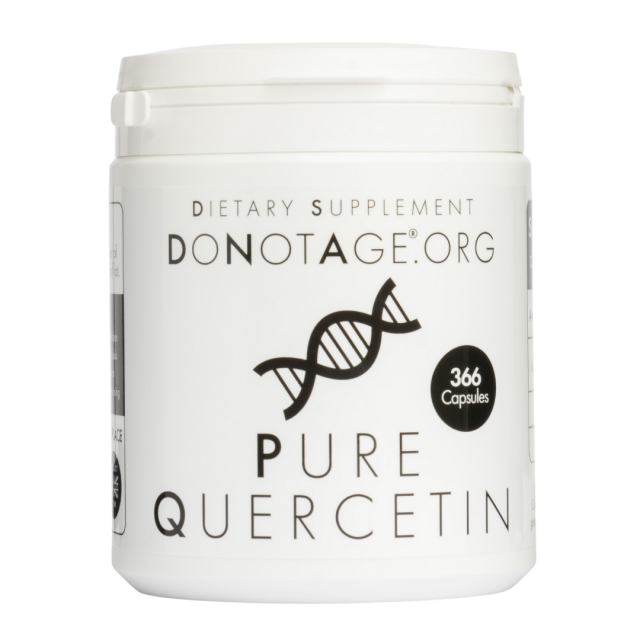Quercetin, a naturally occurring bioflavonoid, offers several potential anti-aging and longevity benefits:
Reduced Inflammation: Quercetin is known for its potent antioxidant properties, which can help reduce inflammation in the body. Chronic inflammation is a significant contributor to the aging process, and managing inflammation effectively can slow down age-related changes in the body.
Improved Heart Health: Quercetin may help lower blood pressure and improve overall heart health. Maintaining a healthy heart is crucial for longevity and can help prevent age-related cardiovascular diseases.
Enhanced Exercise Performance: Studies suggest that Quercetin may enhance exercise performance. Quercetin inhibits myostatin, a protein that limits muscle growth, by downregulating its expression and signaling pathways, thus allowing for increased muscle cell proliferation and differentiation. Anti-aging guru Bryan Johnson went a step further and underwent follistatin gene therapy to achieve enhanced benefits in muscle mass, leveraging follistatin's ability to inhibit myostatin even more effectively. Through this gene therapy, Bryan also gained anti-aging benefits such as improved muscle strength and endurance, increased metabolic rate, enhanced fat loss, and overall better physical vitality..
Neuroprotective Effects: Quercetin is believed to have neuroprotective effects that could potentially aid in the prevention of neurodegenerative diseases. Protecting brain health is essential for maintaining cognitive function and preventing age-related cognitive decline.
Cancer Prevention: Some studies suggest that Quercetin may help in cancer prevention. Preventing cancer is crucial for longevity and maintaining overall health as one ages.
While Quercetin offers potential anti-aging and longevity benefits, it's important to consult with healthcare professionals before starting any new supplement regimen, especially if you have health concerns or are on medication.


